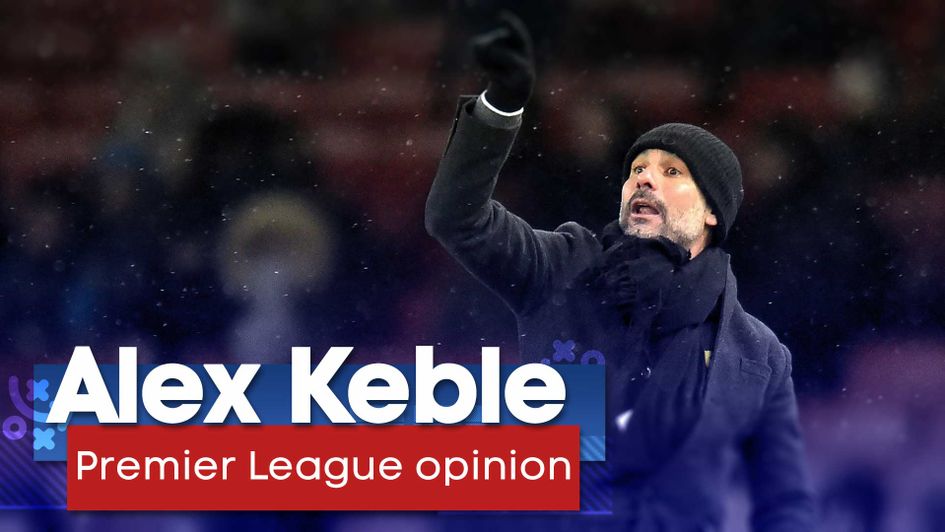Alex Keble argues that the half-hearted Premier League winter break does nothing for clubs, players or more importantly the fans.
Finally it’s here. After more than a decade of calls for an English winter break – to relieve fixture congestion; to prevent exhausted players from getting injured; and to assist England in European club football and the international game – the FA have got their way. Finally England has recognised the need for a rest and caught up with the rest of Europe.
Or at least that’s what we thought when the winter break was first confirmed back in June 2018. The reality is a botched February semi-break from football that does almost nothing to help the aforementioned problems while triggering a whole new set of existential questions about the future of the English game. Unsurprisingly, it turns out the execution of the idea has served to highlight football’s self-defeating obsession with monetising its product no matter the cost.
First of all, it’s been a pretty poor experience from a fan perspective. The middle of this break is an odd limbo state for the supporter, neither nourished by the weekend action just gone nor excited for the next. For Premier League fans, the flurry of 3pm results were lost while the league table became momentarily pointless, reflecting only half-truths as Sheffield United leapt up to fifth and Everton up to seventh. It left an unsatisfying taste.
That might sound like an unnecessary moan, an inconsequential aside compared to, say, injury prevention – but to minimise the fan feel of the weekend is to swallow the narrative we’ve been sold for far too long, that the game is about profit margins, managers’ contentment and industry satisfaction rather than the supporters’ experience.
The break also came far too late, long after the muscle injuries piled up in late December and January, and had no impact on the ludicrous decision to play six games in 15 days over Christmas and New Year. That’s the real cause of injuries and exhaustion in the summer, not the lack of a two-week break - which most clubs already received around this time of year if/when knocked out of the FA Cup.
The FA Cup is the most obviously damaged by this pseudo-break in the schedule, which comes as no surprise given it was sliced and shredded in order to make room in the first place; the fifth round has been moved to midweek to accommodate the break while replays have been scrapped. That decision in June 2018 has become the thin end of the wedge, the first tangible concession that the FA Cup is less important than the Premier League, creating a space to argue about the value of FA Cup replays and even the value of the tournament itself.
Part of the reason the FA Cup is under threat is a perceived absence of ‘magic’ in recent years, and while this primarily reflects how nostalgia has exaggerated memories of cup shocks it is partly because the third round comes at such an exhausting moment. Pretty much everyone is sick of football at the beginning of January and managers inevitably field weakened teams. The ennui that infects so many of us on third-round day tells us why early January is the only sensible time to take a winter break. We all need it after the mammoth Christmas run.
The reason for it coming late, in two halves, and with no respect for its own integrity (by hosting FA Cup fourth round replays within it) is, of course, about money. Splitting the round satisfies TV broadcasters upset by losing their content for a whole weekend. Shifting other tournaments around it speaks to modern football’s insatiable thirst for more football. It is the kind of feverish short-termism that defines late capitalism, a cash grab that ignores the possible long-term effects of wringing resources dry.
The Club World Cup is set to be expanded to 24 teams, including eight from Europe, in a tournament running through June every four years. The Champions League is set for its own expansion soon, with an extra round mooted. The UEFA Conference League, a third tier of European football, begins in 2021.
Soon there will be no room for a winter break at all, and although the FA and the Premier League cannot be blamed for the reckless money-grabbing decisions made by UEFA and FIFA their winter break aligns with the new order. The clubs and supporters asked for space to breathe. Instead, they were given a stretched out hybrid break that serves to prove a modern truth: profit is king.
It is unrealistic to expect the Premier League to roll back, to put the break in a place that truly benefits the players or fans, but they could at least listen to Jose Mourinho’s comments and take the Champions League and Europa League fixtures into account. It is odd that Wolves, Chelsea, Liverpool, Arsenal, Man Utd, and Tottenham play this weekend and then in midweek in Europe when they could have been positioned the week before.
A bloated fixture list is going to seriously damage the sport. The Premier League’s half-hearted attempt at introducing a winter break fuels the argument, making it clear that English football stands with UEFA and FIFA in maximising content output of its most lucrative competitions. No matter the FA Cup is suffering, no matter we get two half-baked weekends of Premier League football.
Follow Sporting Life on social media - find us on Facebook here or tweet@SportingLifeFC
Related football links
- Laura Woods column: Here's to you, Allan
- Alex Keble: How to fix Man City
- Pundit Panel: The VAR verdict
- Henderson favourite for PFA award
- Summer transfers set to happen
- Latest Paper Talk
- Our latest football tips
- Bruno Fernandes: What United will gain
- Super 6: Enter NOW!
- Fantasy Football: Pick your team now!
- Football results
- Latest football odds
